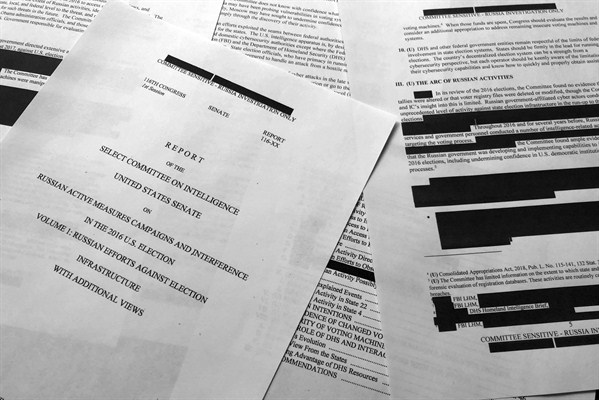As the United States girds for highly contentious and consequential elections later this year, federal agencies and local officials remain woefully unprepared to deal with the high likelihood of foreign interference. The House of Representatives has passed three bills to address election-related vulnerabilities, but none has been taken up by the Senate, leaving gaping deficiencies in election infrastructure and the balloting process. A congressional appropriation of $425 million for election security, enacted last month as part of a broader spending package, will help local officials with urgent needs, but it comes late in the cycle and fails to create a permanent mechanism to fund election security. This means election administrators will most likely spend the money on quick fixes, like updates to existing software, rather than on long-term solutions.
This is in spite of a joint statement issued last November by the heads of numerous federal agencies—including the Justice Department, Pentagon, Department of Homeland Security and FBI—warning that “Russia, China, Iran, and other foreign malicious actors all will seek to interfere in the voting process or influence voter perceptions.” Congress’ willful failure to pass laws to address this challenge makes it practically inevitable that foreign actors will continue to take advantage of America’s vulnerabilities.
Foreign interference threats can be grouped into three main categories: cyberattacks, disinformation and dark money.

